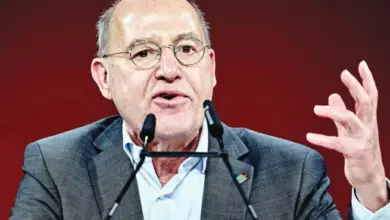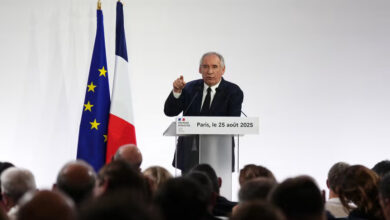For decades Egyptian foreign policy has focused on the Middle East at the expense of African diplomacy, analysts say, but now the government is casting its gaze towards its own continent as economic and political interests renew an engagement that subsided after the early years of Gamal Abdel Nasser’s presidency.
"Looking at the time of Nasser, it was one of proactive and active involvement in African affairs," said Issaka Souare of the Institute for Security Studies in South Africa. "Nasser championed African liberation. Since then, Egyptian involvement in Africa has been quite timid. Sadat was more concerned with Middle Eastern issues than African ones, for understandable reasons."
East Africa has always been considered strategically important for Egypt because nine countries there share the Nile River, which Egypt relies on for about 97 percent of its water, far more than the other countries. If Egypt will consume more than the 55 billion cubic meters of water allotted per year, the government will have to renegotiate terms with Nile Basin countries.
But water is not the only impetus for looking toward African countries: Africa is now increasingly viewed by Egypt’s business class as fertile ground for investment.
With about 15 percent of the world’s population, Africa is the second most populated continent. About half the population lives on less than US$1 per day, according to the International Development Research Center, a Canadian development organization. But many argue that a number of countries around the world have actually worsened because of foreign investment. If this is true, then African nations have good reason to look upon foreign investors with skepticism.
"Thirty-two of the world’s 38 heavily indebted poor countries are in Africa," says the IDRC website. "In recent years, for every US$1 given in aid, nearly 50 cents have gone to the rich nations in debt-service payments."
Africans often look at Egyptians, and other North Africans, as outsiders. "[Egypt] is construed by many African countries as an ‘other,’" Souare said. "Wherever [Egyptians] go they are regarded as [non-African] foreigners, even at the governmental level, although leaders might not say it publicly."
This was shown recently when word got out that an Egyptian investment company, Citadel Capital, was interested in purchasing a controlling stake in Rift Valley Railways International (RVRI), which manages a rail line from Mombassa on Kenya’s coast into Uganda. Local reports described Citadel’s interest as based on the political interests of Egypt, citing a recent project to grow wheat in Uganda.
"Some African nations had–in historical stages–reservations on Egyptian policies and agreements with Egypt were not welcomed," said Ayman Abdel Wahab, a scholar with the Ahram Center for Political and Strategic Studies.
Although Citadel representatives said the company is bound by a confidentiality agreement that prevents it from commenting on a potential deal for RVRI, a spokesperson said that the railway needs to be improved to decrease the cost of transportation of goods in East Africa.
"The journey from Mombassa is a pot-holed, difficult road," said Stephen Murphy, one of Citadel’s managing directors. "That has economic consequences for the goods that have to be transported. That journey by rail should be a significant discount from what it currently costs. Everyone benefits by that economic asset running more efficiently. Our goal is to take it back to the place that it was in the 1970s, when it was well-maintained and well-run."
The difficulty of transporting goods in Africa has impeded investment in general, according to Abdel Wahab. Improving infrastructure will be important for the continent’s economic growth, which will otherwise remain capped so long transportation is limited. For a firm like Citadel, investing in transportation will open up opportunities for other investments and strategically place the company on the ground when business expands.
Safety issues and political instability have made investors reluctant to go into some African nations, but the potential for growth in new markets is attracting investment.
"The reason [investors have not gone to Africa] in many instances is perceived risk," Murphy said. "They are not familiar with investing in those regions or they are not familiar with how you mitigate risk in those regions. We’re dealing as a firm with these perceived risks."
While investors are going into African nations, Egyptian foreign policy is turning to Africa to mitigate its own risks, in terms of food security. Egypt is one of the world’s largest importers and per capita consumers of wheat, and a shortage in that commodity could have a tremendous impact on the availability and prices of food at home. In January, the Ugandan government agreed to allow Egypt to harvest wheat on its soil. Similar deals have been set up in Sudan, including 250,000 acres of land purchased by Citadel to cultivate agriculture.
"Many issues restored Egypt’s attention to the African continent," said Abdel Wahab. "Food security is of the key points."
Analysts say that African nations have much to gain from Egypt, as well. The African Union (AU) has ambitious plans to develop hydroelectric dams, which could utilize the support of Egyptian engineers that have decades of experience from the Aswan High Dam. At the recent AU summit, Minister of Communication and Information Technology Tarek Kamel is reported to have offered Ghana support in building its technology sector.
Egypt is also one of the main financial contributors to the AU. It is one of five countries that pay 15 percent of its budget. Also, a substantial number of AU peacekeeping troops come from Egypt, although Issaka has heard complaints that the quality of the troops does not always represent the capabilities of the Egyptian military.
"If you compare Egypt’s role to that of South Africa or Nigeria, there’s no need to make comparisons," Souare said. "You could compare Egypt to Algeria and Libya, but even they play a more visible role."




